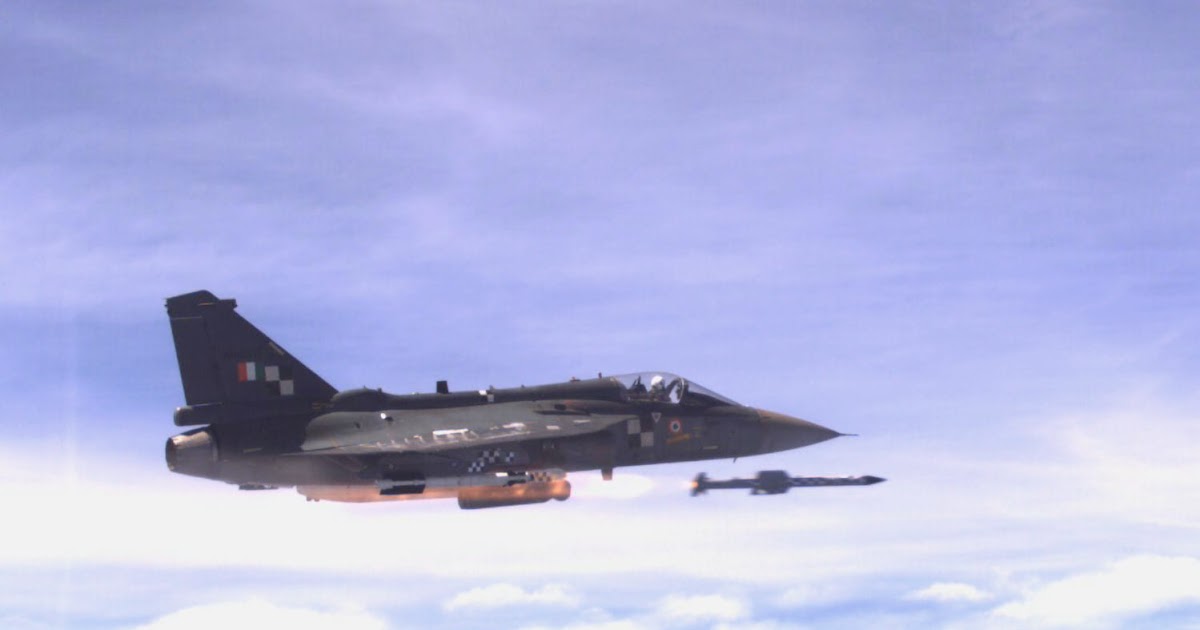
A Tejas Mark-1 fighter releases an Astra air-to-air missile in a test carried out on Wednesday
By Vikas Gupta
Defence News of India, 24th Aug 23
The Indian Air Force (IAF) chief, Air Chief Marshal VR Chaudhari, in a high-level review of the Tejas Light Combat Aircraft (LCA) programme on Tuesday, was told that all contracted single-seat variants of the LCA Mark 1 had been delivered to the IAF.
Representatives of Hindustan Aeronautics Ltd (HAL) assured the CAS of the timely delivery of the contracted twin-seaters in the coming months, as well. That would take to 40 fighters – or two squadrons – the number of Tejas Mark 1 fighters delivered.
In addition to these 40 fighters, the IAF has also contracted with HAL in 2021 to buy 83 Tejas Mark-1A fighters. The HAL chairman assured the chief that deliveries of this advanced variant of the LCA would commence by Feb 2024.
While complimenting HAL, the air chief indicated that based on these assurances, a number of Tejas Mark 1A fighters could be inducted in a newly raised squadron in one of the IAF’s operational bases, early next year.
“With timely deliveries of the more capable (Mark-1A) variant, the Tejas Mk 1A is likely to see increased deployments at forward bases, besides participation in International exercises in the days to come,” stated the Ministry of Defence (MoD) in a media release on Wednesday.
The air chief brought out that the LCA has been the flag bearer of the IAF’s efforts towards indigenisation of its aircraft fleet… and the flag bearer of India’s self-reliance in the aerospace sector.
Astra air-to-air missile test fired
On Wednesday, the Tejas fighter also successfully test-fired the indigenous Astra beyond visual range (BVR) air-to-air missile off the Goa coast.
Astra is a state-of-the-art, air-to-air missile that has been designed to engage and destroy sharply-maneuvering supersonic aerial targets.
“The missile release was successfully carried out from the aircraft at an altitude of about 20,000 feet. All the objectives of the test were met and it was a perfect text book launch,” stated the Defence Research and Development Organisation (DRDO) in a media release on Wednesday.
The launch of the Astra was monitored by the Aeronautical Development Agency (ADA), which is the DRDO laboratory in charge of the Astra programme. The project is also led by the Defence Research and Development Laboratory, Research Centre Imarat and other DRDO laboratories.
The launch of the Astra was also monitored by a Tejas twin seater aircraft, which played the role of a “chase aircraft”.
Defence Minister Rajnath Singh complimented the DRDO and India’s aerospace industry for the successful firing of the Astra missile from the Tejas fighter. He said the launch would significantly enhance the combat prowess of Tejas and reduce the dependency on imported weapons.






